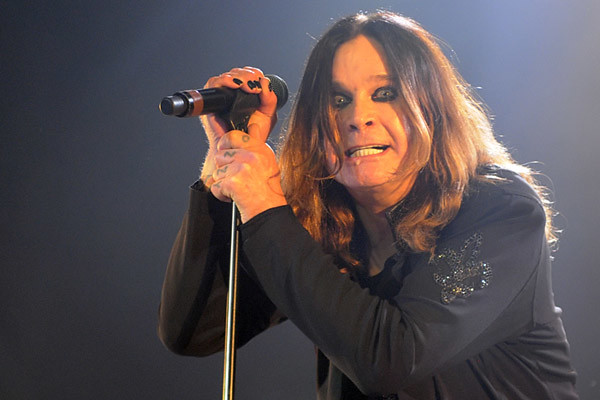Heavy metal pioneer Ozzy Osbourne has confirmed he will perform at Black Sabbath’s final concert this summer, but with significant limitations due to his ongoing health challenges.
The Prince of Darkness revealed he can only manage “a couple of songs” during the historic “Back To The Beginning” show scheduled for July 5, 2025, at Villa Park in Birmingham. At 76 years old, he will soon join the legendary list of senior singers.
Osbourne expressed concern about potential disappointment from fans, stating: “We’re only playing a couple of songs each. I don’t want people thinking ‘we’re getting ripped off,’ because it’s just going to be a sample.”
The concert marks a significant moment for heavy metal fans worldwide, reuniting the original Black Sabbath lineup—Ozzy Osbourne, Tony Iommi, Geezer Butler, and Bill Ward—for the first time in two decades. The event will also feature performances from other metal giants including Metallica, Slayer, and Pantera.
Osbourne’s health struggles have been well-documented in recent years. He’s been battling Parkinson’s disease and continues to recover from a 2019 fall that aggravated previous injuries from a quad bike accident in 2003. These health setbacks led to the cancellation of his planned “No More Tours 2” shows across Europe and the UK.
While these health battles would sideline most performers permanently, they’ve somehow transformed into fuel for Osbourne’s determination to deliver one final—albeit abbreviated—performance for the fans who’ve supported him through five tumultuous decades. “I’m never going to be 100 percent. I do the best I can,” he told reporters. The concert represents more than just a performance for the metal icon—it’s become “a reason to keep going.”
Sharon Osbourne, equal parts wife, manager, and architect of Ozzy’s most pivotal career moves, dreamed up the reunion concept. Villa Park will transform from football stadium to heavy metal holy ground on July 5th, as the city that forged Black Sabbath in its industrial furnace welcomes home its most famous sons for one final communion with fans.
Fans across social media have expressed mixed emotions about the limited performance, but most echo the sentiment shared in countless forum posts: that witnessing even a brief final appearance by the original lineup transcends any disappointment about the shortened set.
The supporting lineup reads like a metal Mount Rushmore—Metallica, Slayer, and Pantera—bands that might never have existed if Black Sabbath hadn’t first shown that distortion and darkness could change music forever. While the band remains tight-lipped about their song selection, music publications including Louder Sound and Classic Rock have speculated that anthems like “Paranoid” and “Iron Man” are likely inclusions for the abbreviated performance, though no official setlist has been confirmed.
The profits will fund Cure Parkinson’s, Birmingham Children’s Hospital, and Acorn Children’s Hospice—turning a headbanger’s farewell into a philanthropic power move. Black Sabbath‘s influence cannot be overstated. With more than 75 million albums sold worldwide and induction into the Rock & Roll Hall of Fame in 2006, they didn’t just participate in heavy metal—they created its DNA.
Ticket websites crashed within minutes of the announcement, with resale platforms listing passes at prices exceeding £2,000—showing the extraordinary demand to witness what many music journalists are calling metal’s most significant farewell concert.
When Osbourne takes the microphone for those few precious songs, it won’t just be a performance—it’ll be heavy metal’s most sacred ritual, a final chance to witness the wounded but unbowed godfather of a genre that gave voice to generations of outsiders. For fans, two songs will have to be enough—because sometimes, goodbye comes in small doses.


























